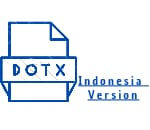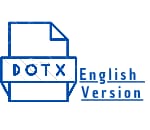Analysis of the Application of Taxes to Village Fund Management
DOI:
https://doi.org/10.35137/jabk.v11i2.406Abstract
The purpose of this research is to examine how the implementation of taxation in South Biboki District, North Central Timor Regency, East Nusa Tenggara, over the past three years, from 2021 to 2023, has been conducted effectively and in accordance with the prevailing taxation laws and regulations. This research utilizes a qualitative research approach. The applied research method is qualitative descriptive method. The data collected involves both primary and secondary data, and adopts data collection techniques through interviews, observations, and documentation. The data sources obtained include both primary and secondary data sources. Based on the analysis results, the village of Upfaon has already conducted reporting and tax payment for village funds used in accordance with the prevailing tax laws and regulations. However, there are certain transactions that, due to limited understanding and awareness of tax obligations, have resulted in incorrect tax collection, deduction, payment, and reporting, thus disadvantaging state tax revenue and leading to additional expenditures from village funds that should not have been incurred. For external parties such as the Tax Service Office, District, and Regency, it is expected that they will provide special mentoring in tax training to the village related to the management of village fund tax finances so that village officials are able to carry out their duties more effectively.
Downloads
Downloads
Published
Issue
Section
License
Copyright (c) 1970 Kristina Wada Betu

This work is licensed under a Creative Commons Attribution-NonCommercial-ShareAlike 4.0 International License.
Authors retain the copyright of the work published in this journal and grant first publication rights to the journal. Authors may make separate, additional contractual arrangements for non-exclusive distribution of the journal-published version of the work (e.g., posting it to an institutional repository or publishing it in a book) with acknowledgment of its initial publication in this journal. Authors are permitted and encouraged to post their work online (e.g., in institutional repositories or on their websites) before and during the submission process, as it can result in productive exchanges, as well as earlier and greater citation of the published work.
Use of published articles will be governed by the Creative Commons Attribution license as currently displayed at Attribution-NonCommercial-ShareAlike 4.0 International (CC BY-NC-SA 4.0).




